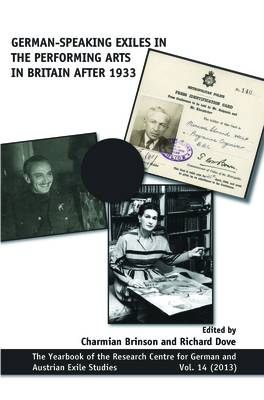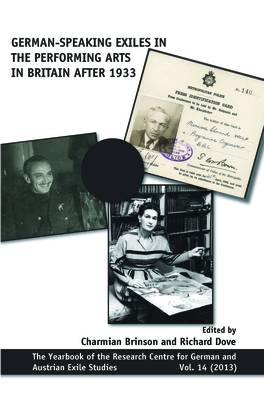
- Afhalen na 1 uur in een winkel met voorraad
- Gratis thuislevering in België vanaf € 30
- Ruim aanbod met 7 miljoen producten
- Afhalen na 1 uur in een winkel met voorraad
- Gratis thuislevering in België vanaf € 30
- Ruim aanbod met 7 miljoen producten
Zoeken
German-speaking Exiles in the Performing Arts in Britain after 1933
€ 167,45
+ 334 punten
Omschrijving
This volume focuses on the contribution of German-speaking refugees from Nazism to the performing arts in Britain, evaluating their role in broadcasting, theatre, film and dance from 1933 to the present. It contains essays evaluating the role of refugee artists in the BBC German Service, including the actor Martin Miller, the writer Bruno Adler and the journalist Edmund Wolf. Miller also made a career in the English theatre transcending the barrier of language, as did the actor Gerhard Hinze, whose transition to the English stage is an instructive example of adaptation to a new theatre culture. In film, language problems were mitigated by the technical possibilities of the medium, although stars like Anton Walbrook received coaching in English. Certainly, technicians from Central Europe, like the cameraman Wolf Suschitzky, helped establish the character of British film in the 1950s and 1960s. In dance theatre, language played little role, facilitating the influence in Britain of dance practitioners like Kurt Jooss and Sigurd Leeder. Finally, evaluating the reverse influence of émigrés on Germany, two essays discuss Erich Fried's translations of Shakespeare and Peter Zadek's early theatre career in Germany.
Specificaties
Betrokkenen
- Uitgeverij:
Inhoud
- Aantal bladzijden:
- 328
- Taal:
- Engels
- Reeks:
- Reeksnummer:
- nr. 14
Eigenschappen
- Productcode (EAN):
- 9789042036512
- Verschijningsdatum:
- 1/01/2013
- Uitvoering:
- Paperback
- Formaat:
- Trade paperback (VS)
- Afmetingen:
- 155 mm x 234 mm
- Gewicht:
- 458 g

Alleen bij Standaard Boekhandel
+ 334 punten op je klantenkaart van Standaard Boekhandel
Beoordelingen
We publiceren alleen reviews die voldoen aan de voorwaarden voor reviews. Bekijk onze voorwaarden voor reviews.







